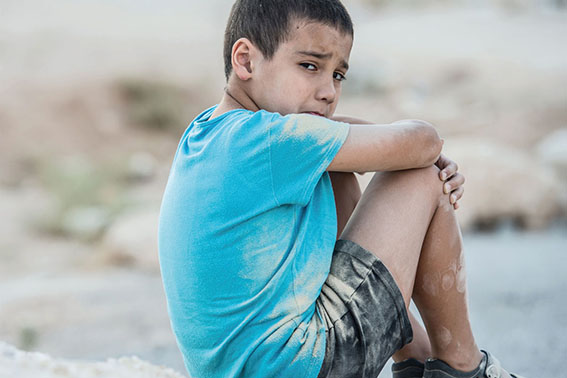A JCPP study looking at the effectiveness of support groups for Syrian refugees living in Jordan has been presented at a WHO meeting in Geneva.
According to the authors, the randomised controlled trial is the first to apply such robust evaluations to humanitarian interventions for refugee mental health. It found the community-based programme offered modest psychosocial benefits to participants.
“It’s not business as usual,” said lead author Catherine Panter-Brick of Yale University. She said humanitarian bodies usually carry out evaluations themselves, which may not be robust.
The study followed 817 adolescents, aged between 12 and 18 years old, as they completed an eight-week course of group-based activities including fitness, arts & crafts, technical and vocational skills.
According to the UN refugee agency, 330,000 Syrians under the age of 18 have taken refuge in Jordan since the beginning of the Syrian crisis.
The study group was 55% Syrian, with the rest made up of the adolescent Jordanian hosts of refugees.
The Syrian refugees had on average experienced around six traumatic life events, such as witnessing bombardments, the destruction of homes, dead bodies, forcible searches and beatings. The Jordanians had on average experienced one traumatic life event.
Catherine said there has been a shift in the last decade from addressing trauma to also trying to alleviate profound stress. “The brain is flooded with toxic stress and it impacts their decision making, it impacts their reactions, it impacts their learning,” she said.
For ethical reasons, the control group were randomly assigned to a waiting list, and were able to participate in the support groups after the study period. Catherine said the study was only possible with the involvement of local volunteers. “The randomisation of the trial needed a strong explanation on the ground” she said.
The authors measured three outcomes: human insecurity, distress and mental health difficulties. They found decreased human insecurity scores of around 7 percentage points in youth that completed the programme.
“Initially I thought small effects were slightly disappointing” said Catherine “because I’d seen the positive impacts on people in the field.”
“But when you look at the literature it’s substantial,” she said “if there’s a small effect size it still makes a difference.”
Catherine said there was a need for trust in building relationships between academia and charities.
“We might well find that things don’t work, or don’t work as well as they are thought to,” she said. Catherine will continue to collaborate with the charity she worked with for the study. Over the next five years she hopes to introduce cost-effectiveness and scalability into her evaluations.
Whatever her findings, she has no doubts about the overall objectives of such interventions. “Normalising their life – alleviating symptoms of fear and stress – goes a long way,” she said “it cascades onto their biology and their cognition.”
Panter-Brick, C., Dajani, R., Eggerman, M., Hermosilla, S., Sancilio, A. and Ager, A. (2017), Insecurity, distress and mental health: experimental and randomized controlled trials of a psychosocial intervention for youth affected by the Syrian crisis. J Child Psychol Psychiatr.
